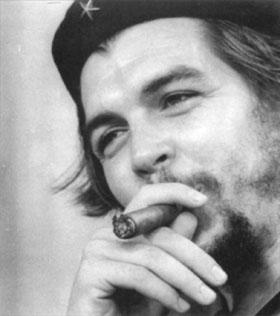
Che Guevara on the mistakes of the revolution
From a speech made in Algiers on February 26 1965
We copied, automatically, from the experiences of brother (socialist) countries, and this was a mistake.
We have have had to learn from practice, by our errors… th at planning and socialism go together and that one cannot plan everything when the economic conditions present do not allow it… The revolutionary leaders consisted only of a group of fighters, with high ideals but insufficient knowledge… The superstructure of the capitalist neo-colonial state was intact; we had to work to destroy it and to rebuild our society on new bases… We had to change the structures, we began to do so without a plan.
The revolutionary group, with Fidel Castro at the head, first issued the Agrarian Reform Law. This indespensible law… revealed a terrible instrument: the class struggle-and it pushed the Cuban Revolution to its limits…

We tried to act upon nature subjectively, as if our direct contact with it would accomplish what we were after, ignoring the objective experiences of other countries… It was ridiculous to plan for a 15 percent growth…
Our foreign commerce has totally changed directions, geographically… All this international shopping had to be carried out, not in a day by telephone, but with countries which are two months away, and which operate under systems of their own, with internal and external short-range and long-range equipment and raw materials…
In making our plans, we committed errors in our conception of the development of industry and agriculture, and in the balance of our economy. In industry, we evolved a plan based on the hope of becoming self-sufficient in a whole series of consumer products and of medium industry which, however, could easily have been obtained in friendly countries…
In agriculture, we committed the fundamental error of disdaining sugar, our national product… this impoverished the cane. An extraordinary drought during the first two years provoked a grave crisis in production.
In the redistribution of wealth we gave too much importance in the beginning to satisfying social needs, to paying more equitable salaries, to increasing employment-all without sufficiently taking account of the general state of our economy.
We are building Socialism on our earth, and we are placing our small grain of sand at the service of the great aspiration of mankind-the elimination of the exploitation of man by man. The fiercest enemy of this aspiration is imperialism. We are fighting for the definite realization of Communism-the society without classes."
Return to 1965